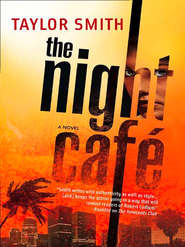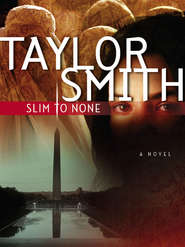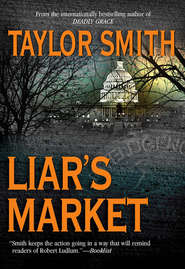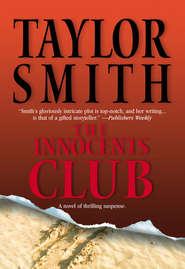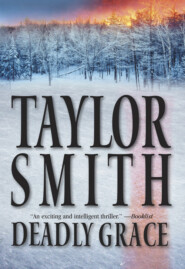По всем вопросам обращайтесь на: info@litportal.ru
(©) 2003-2024.
✖
Guilt By Silence
Автор
Год написания книги
2018
Настройки чтения
Размер шрифта
Высота строк
Поля
She punched in her password again: “CHAUCER.”
“RESTRICTED FILE. ACCESS DENIED. ENTER NEW FILE NAME.”
Her heart was pounding as she leaned back in her chair and stared at the stubborn message. Then she hunched forward again. “All right,” she said under her breath, “let’s try another approach.”
She punched in a new file request: “MARIAH BOLT. PERSONAL LOG. VIENNA STATION.”
The cursor flashed for a moment as the Cray computer down in the Agency’s basement searched its data banks. Then a long list of document titles began scrolling down the screen—three years’ worth of contact reports and intelligence assessments that she had filed while she was posted to the CIA station in Vienna. As her eye scanned the rolling list, Mariah’s mind wandered back.
It was never a given that she would get an overseas assignment.
Despite its monolithic appearance, the CIA is a bureaucracy like any other, with internal divisions and rivalries. The most pronounced is between its operations (DDO) and analysis (DDI) directorates. Operations officers do the overseas clandestine work, while back at Langley, analysts sift through masses of intelligence garnered from various sources like tea-leaf readers, trying to predict the future. These two sides of the house view each other with mutual suspicion bordering on contempt. The trained covert operators regard the analysts as ineffectual pencil pushers, shuffling papers and conducting endless intellectual debates while the world burns around them. To the analysts, the clandestine ops people are cowboys, too often launching risky and ill-conceived operations that end up backfiring and smearing the Agency’s reputation. Limited interplay between these two directorates only feeds the skepticism and distrust between them.
Mariah had made her career among the analysts. Frank had recruited her because of her specialized knowledge of the Soviet arsenal, and for ten years she had helped track political and military developments in the Soviet Union. She had worked on various desks, sifting through intercepted communications for hints of what the Soviets were planning next, poring over the satellite photographs of secret installations, interpreting whatever gossip could be gleaned on who was up and who was out in the Moscow hierarchy. On a couple of occasions, under State Department cover, she had attended Soviet-American conferences posing as an administrative aide, meeting the faces behind the names in the intelligence reports and trying to figure out if there were moderates on the other side who would work for an end to the craziness.
During this time, David had been building a name for himself as a brilliant theoretician as well as a thoughtful writer on the need to contain the atomic beast that the scientists at Los Alamos had unleashed in 1945. When the Soviet Union had first begun to show signs of disintegration, he and Mariah had both worried about the danger of its nuclear arsenal slipping away in the confusion. David had developed a friendship with Hans Blix, the Swedish director general of the International Atomic Energy Agency, the U.N.’s nuclear watchdog. When Blix asked David to come to Vienna to help with the job of beefing up the IAEA, he was eager to accept.
Mariah had talked it over with Frank and he, in turn, had gone to DDO, George Neville. In the end, they had agreed to transfer Mariah to the operations side of the Agency and post her to the Vienna station under cover of the embassy’s administrative section. For the period of the Vienna assignment, Mariah—somewhat to her chagrin—had joined the cowboys.
The list of titles on the screen ended with a reference to the last contact report she had filed in Vienna. It was a brief account of her secret meeting with the Hungarian diplomat she had raced off to see instead of driving Lindsay to school that terrible morning.
She fumed at the sight of his code name on the screen— “RELIANCE”—someone’s idea of a joke, it seemed. The man was an alcoholic and a completely unreliable asset. He had been run by the Company for years, far beyond his capacity to provide anything useful by way of information on the crumbling Soviet empire in Eastern Europe. For this bum, I sent my family into a trap, Mariah thought bitterly.
But what she was looking for as she scanned the names of reports was “CHAUCER”—the code name of the Russian physicist who had confided her suspicion that Soviet nuclear weapons were being traded for hard currency. Mariah had met her through David’s office, had recruited her, had been her handler right up to the day the woman disappeared.
Tatyana Baranova was serving in the multinational IAEA when Mariah first encountered her at an agency farewell party for a departing British inspector. Lindsay was there, too, Mariah suddenly remembered with a smile. In fact, truth be told, it was Lindsay who had opened the door to the CHAUCER operation.
She had picked Lindsay up from the American School, and the two of them had run up to David’s IAEA office in the Vienna International Centre on the Wagramerstrasse. There they had found an office party in full swing.
Someone had placed a glass of wine in Mariah’s hand and a soft drink in Lindsay’s, and the two of them were sitting perched on a desk in a corner, laughing at David playing his harmonica and the impromptu chorus serenading the retiring British inspector with an off-key and tragicomic rendition of the Beatles’ “Yesterday.” When the song ended, half of the chorus was on bended knee, arms wrapped around the legs of the laughing Brit, imploring him to stay. Lindsay giggled at the silliness as the inspector turned several shades of red, struggling in vain to detach himself from the grip of the clowns at his feet.
“What a beautiful child!”
Mariah turned away from the antics across the room and found herself facing a woman who was watching Lindsay, bewitched, it seemed, by the copper curls and laughing dark eyes. She had apparently sidled up next to them at some point during the song. She looked to be in her early thirties, a few years younger than Mariah herself, short and on the pudgy side—the typical result of a starchy East European diet. She had a round, pleasant face and wide-set, pale blue eyes under overpermed blond hair. Her smile, as she glanced over Lindsay’s head at Mariah, was the hesitant gesture of the shy and lonely. The eyes dropped quickly, back to the child.
Lindsay looked up, a flicker of self-consciousness crossing her features before the giggles overtook her again. “That’s my dad,” she said, pointing at the group across the room. “He’s so crazy!”
The woman smiled once more, her eyebrows rising as she followed Lindsay’s finger. “Which one? Mr. Hewlett, who is leaving us?”
“No, the one with the harmonica. He’s a really good player. He taught himself. He can play anything, but he likes the blues best,” she confided.
“Oh, I see. So you are Dr. Tardiff’s little girl. What is your name, sweetheart?”
“Lindsay Bolt-Tardiff,” Lindsay said, holding out her hand, very grown-up. “And I’m eleven—well, almost.” They shook hands.
“Please excuse me,” the woman said, her expression appropriately serious. “I meant to say ‘Dr. Tardiff’s fine young lady.’ I am very pleased to meet you, Lindsay Bolt-Tardiff. I am Tatyana Baranova—you must call me Tanya.”
“Hi.” Lindsay glanced back at Mariah. “This is my mom.”
“Mrs. Tardiff. How do you do? You have a beautiful daughter.”
“Thank you,” Mariah said, smiling as she took the woman’s hand. “Call me Mariah. Do you work with the IAEA, Tanya?”
“Yes, but I have only been here a few weeks. I do not know many of my colleagues yet.”
“How are you finding Vienna?”
“It is very beautiful. Very expensive,” she added, rolling her eyes. “There are so many things in the shops—my goodness, I can hardly believe it—but not many bargains.”
“That’s for sure.”
“In Moscow, the shops have nothing. Here, it is the opposite, but expensive! How simple people live, I cannot imagine.”
“There’s a lot to see and do that doesn’t cost a fortune, once you find your way around.”
“I’ve seen the Lippizaner stallions three times!” Lindsay proclaimed proudly. “They dance!”
Tanya smiled warmly at her. “Just like your eyes, lovely one. Tell me, where did you get your beautiful hair? Your papa’s is black and your mama is fair, but you—so beautiful, this hair!” She ran her fingers lightly across Lindsay’s curls.
“I don’t know. Daddy says I’m a throwaway.”
“Throwback, Lins,” Mariah said, laughing. She looked up at Tanya. “My grandfather had red hair. I’ve never met a redhead in David’s family, but he says there were a few somewhere on the family tree, so I guess he must be carrying the gene, too.”
“Why would Daddy carry his jeans? And what’s that got to do with hair, silly?”
“Not jeans—genes. G-E-N-E-S,” Mariah explained, spelling out the word. “The kind you inherit from your mother and father that determine if you’ll be big or small—have brown eyes or blue. Red hair is uncommon because the gene is recessive. It hides, unless both parents pass it on.”
“I knew that,” Lindsay said, sniffing. “I was just testing to see whether or not you did.” She turned to Tanya. “I have hockey genes, too.”
“Hockey genes?”
Lindsay nodded. “From my dad and not my mom ’cause she comes from California and she hasn’t got any winter-sport genes in her at all. My dad’s teaching me to play hockey.”
“You don’t say. Well then, Lindsay Bolt-Tardiff, we have something in common, because when I was a little girl, believe it or not, I used to play on a girls’ hockey team at my school in Russia. We had a small league, but we were very good—at least, we thought so. I played goalie.”
“My dad plays center. I don’t play any position here because they don’t let girls on the teams. It’s not fair! I have to just skate around with my dad and we pass the puck. But I’ve got a killer slap shot,” she added. “I bet I could get it past you!”
“I am certain you could,” Tanya said, laughing. “I have not played in many years. Now, I just like to watch.”
“You could come and watch Daddy’s team play on Saturday. Mom? Couldn’t Tanya come with us?”
“Yes, of course. We’d love to have you join us. David’s team is just a bunch of guys from some of the foreign missions. Your embassy has a house team, too—David and his friends often play against them. But they’re playing a team from a local factory on Saturday morning. It’s not professional caliber or anything, but it’s fun. Why don’t you come and watch with us?”
“Oh, you are very kind, but I don’t think—”
“We could pick you up,” Lindsay offered helpfully, checking with her mother. Mariah nodded.
As she watched Tanya searching for a response, Mariah saw in her eyes that sudden fear—the fear born of dire warnings from KGB officers about what lies in wait for those who consort with capitalist enemies. And as Tanya’s eyes fell, Mariah saw regret, and then a flash of something else. Anger? Defiance?






